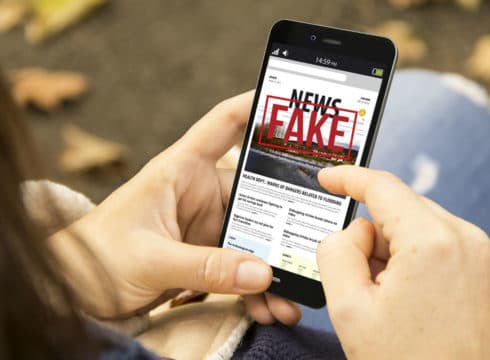Election Commission had asked the companies to reduce the takedown time to two hours
The body has requested ECI to maintain the three hour timeframe for flexibility
It also asked the commission to consider suspension of the takedown time limit in certain complex cases
Inc42 Daily Brief
Stay Ahead With Daily News & Analysis on India’s Tech & Startup Economy
With only two days left for the Lok Sabha elections, social media companies have agreed to take down objectionable content which violates the 48-hour media silence rule within two hours, according to Internet and Mobile Association of India (IAMAI).
In a letter to the Election Commission, the association body has said that the social media sites will process the violations within two hours. However it has asked for some flexibility, reported ET.
The body has requested the election watchdog to still maintain the three hour timeframe so that the companies get enough time to acknowledge and process violations under all circumstances.
It has also asked the commission to consider suspension of the takedown time limit in certain cases where the social media companies may require more information such as requests that lack URLs or involve large volumes or do not follow ‘lawful process.’
Citing sources, the report has said that the commission has called officials of social media companies on Saturday (April 13) to discuss this matter.
This development comes in after a petition seeking regulation of social media companies was filed in the court in October. The petition claimed that the three-hour takedown time limit was too long and could also frustrate the object of prohibiting political advertising 48 hours before elections.
In response to the issues pointed out, the commission had asked the social media sites to reduce their takedown time to two hours.
Social Media Companies Under The Lens
All the major social media companies such as Facebook, WhatsApp, Twitter, and Instagram have been facing troubles in India due to the central government’s strict stand on curbing the spread of fake news.
According to a report by Statista, the number of internet users in India will reach 638.8 Mn by 2021. With the internet being so widely available, the political parties have taken to the internet for their election campaigns.
As a majority of the politicals ads are spread across the social media companies during the election times, there is an increased risk of spread of fake news. Recently, it was reported that Andhra Pradesh’s Chief Minister-led Telegu Desam Party (TDP) is leading in terms of political ads spending on Google. The regional party is closely followed by the Narendra Modi’s Bharatiya Janata Party (BJP).
Last week, the commission had directed its state level bodies to appoint nodal officers who will be responsible for keeping a tab on the spread of fake news, hate speech and other unlawful content across social media companies.
In March, social media companies along with IAMAI had submitted the “Voluntary Code of Ethics for the General Election 2019” to chief election commissioner Sunil Arora and election commissioners Ashok Lavasa and Sushil Chandra.
{{#name}}{{name}}{{/name}}{{^name}}-{{/name}}
{{#description}}{{description}}...{{/description}}{{^description}}-{{/description}}
Note: We at Inc42 take our ethics very seriously. More information about it can be found here.


